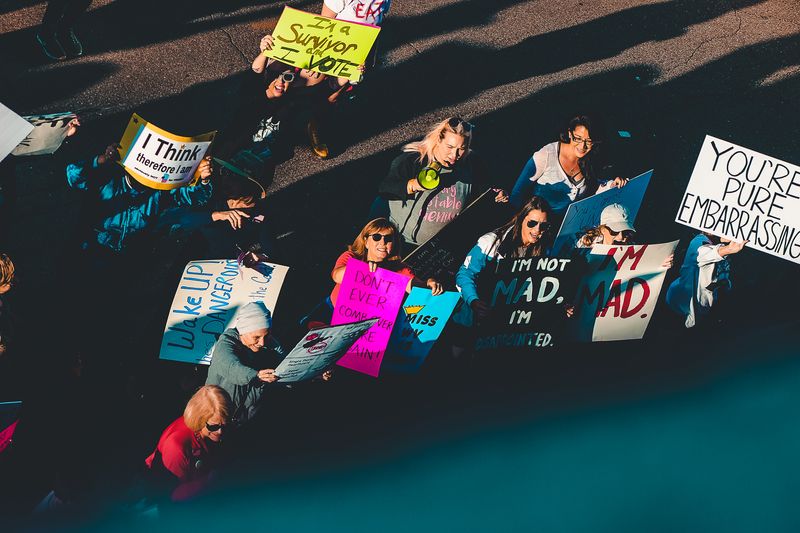President Biden Criticizes Supreme Court Ruling on Affirmative Action
The Ruling and Biden’s Disagreement
President Joe Biden expressed strong disagreement with the recent Supreme Court ruling that bans colleges from considering race in their admissions decisions. In remarks from the White House, Biden criticized the decision, stating that it effectively ends affirmative action and ignores decades of legal precedent. He argued that diversity brings strength, citing the success of the US military as evidence. Biden urged private businesses not to roll back their own diversity programs in response to the ruling, emphasizing that the decision should not be a permanent setback for the country.
Is the Supreme Court a “Rogue Court”?
When asked by a reporter if he believed the Supreme Court was a “rogue court,” Biden responded by saying, “This is not a normal court.” This statement drew widespread attention and raised questions about the direction of the Supreme Court under its current makeup. Biden expanded on his remark in an interview with MSNBC, stating that the court has unraveled basic rights and decisions more than any other court in recent history. He pointed to the overturning of Roe v. Wade and the recent decision on affirmative action as examples of the court going against long-standing precedents.
The Importance of Diversity in College Admissions
Biden emphasized his belief that colleges are stronger when they are racially diverse. He urged colleges to consider students’ backgrounds in addition to their grades and test scores when making admissions decisions. Biden argued that students who have faced tougher challenges, such as being the first in their family to attend college or coming from disadvantaged backgrounds, have demonstrated more grit and determination. Therefore, their experiences should be taken into account.
Actions to Maintain Diversity
While the exact actions Biden could take to undo the Supreme Court’s decision on affirmative action are unclear, he mentioned that he has asked the Department of Education to explore ways to maintain diversity in student bodies. This includes identifying policies that enhance diversity, while also scrutinizing practices like “legacy” admissions, which give preference to children of alumni.
Philosophical Discussion: Affirmative Action and Equality
The Supreme Court’s ruling on affirmative action and President Biden’s response highlight the ongoing debate around the role of race in college admissions and broader questions of equality and fairness. Affirmative action policies aim to address historical and ongoing discrimination by giving certain racial and ethnic groups preference in college admissions. Supporters argue that these policies are necessary to create a more level playing field and promote diversity, while opponents claim that they perpetuate unfair advantages or discriminate against other groups.
Equal Opportunity vs. Colorblindness
The question at the heart of the debate is how to achieve a society that is both racially equitable and free from discrimination. Some argue for a colorblind approach, asserting that race should not be taken into account in any decision-making process, including college admissions. They contend that treating individuals solely on the basis of merit ensures equal opportunity and avoids discrimination.
Others advocate for a vision of equality that recognizes historical and ongoing disadvantages faced by certain racial and ethnic groups. They argue that a colorblind approach overlooks systemic barriers and fails to address the deep-rooted inequalities that persist. According to this perspective, affirmative action is a necessary corrective measure to ensure equal access to opportunities for groups that have historically been marginalized.
The Importance of Diversity as an Educational Benefit
Another aspect of the debate revolves around the educational benefits of diversity. Supporters of affirmative action argue that a racially diverse student body enhances the educational experience by exposing students to a variety of perspectives and fostering critical thinking skills. They contend that this prepares students to navigate a diverse and multicultural society.
Opponents of affirmative action often challenge the notion that diversity in student bodies provides significant educational benefits. They question whether the demographic composition of a college campus directly relates to improved educational outcomes. Instead, they argue that academic criteria should be the sole determining factor in college admissions.
Editorial: The Value of Considering Race in College Admissions
President Biden’s criticism of the Supreme Court’s ruling on affirmative action and his call for colleges to maintain diversity in their student bodies raises important questions about the role of race in college admissions.
While it is essential to uphold the principle of equal opportunity and merit-based admissions, we should also recognize the limitations of a purely colorblind approach. Ignoring the historical and ongoing disadvantages faced by certain racial and ethnic groups can perpetuate inequality and hinder progress towards a more equitable society.
Race-conscious admissions policies, when properly designed and implemented, can help level the playing field and promote diversity in higher education. It is crucial to acknowledge that diversity encompasses not only racial and ethnic backgrounds but also socioeconomic status, cultural perspectives, and life experiences. By considering these factors alongside academic qualifications, colleges can create a more inclusive learning environment that mirrors the complexity of the world students will eventually enter.
The educational benefits of diversity should not be underestimated. The exposure to diverse perspectives challenges students’ assumptions, broadens their understanding, and fosters empathy and tolerance. These skills are crucial for future leaders and citizens who will navigate an interconnected global society.
It is also worth acknowledging that admissions decisions are not solely about finding the most academically accomplished students. College admissions should take into account an individual’s potential for growth, resilience, and contribution to the campus community. By considering a holistic range of factors, colleges can identify students who have overcome challenges, demonstrated determination, and possess unique qualities that will enrich the educational environment.
Advice: Moving Forward on Affirmative Action
In light of the Supreme Court’s ruling and the ongoing debate, it is essential for policymakers, educators, and the public to engage in constructive discussions about the future of affirmative action and college admissions.
1. Research and Data
It is crucial to gather comprehensive data on the impact of affirmative action policies and determine their effectiveness in promoting diversity and addressing historical disparities. This research should inform the development of evidence-based admissions practices that ensure fairness and equal opportunity.
2. Equity in K-12 Education
Addressing disparities in K-12 education is vital to create a more level playing field for students from all backgrounds. Investing in high-quality education in underprivileged communities, providing robust support systems, and reducing resource gaps are key steps towards achieving this goal.
3. Holistic Admissions Criteria
Colleges should continue to evaluate their admissions criteria to ensure that they holistically assess an applicant’s potential, considering factors beyond grades and test scores. This includes taking into account the unique challenges and achievements of individuals from diverse backgrounds.
4. Outreach and Support
Colleges should actively engage in outreach efforts to attract a diverse pool of applicants and provide necessary support systems to ensure their success once admitted. Mentorship programs, financial assistance, and inclusive campus policies can contribute to higher retention rates and improved outcomes for students from marginalized communities.
5. Long-Term Perspective
Efforts to promote diversity and equity in college admissions should be seen as part of a broader commitment to social justice and equality. Policies and practices should be continually evaluated and adjusted to reflect evolving societal contexts and needs.
By engaging in thoughtful, evidence-based discussions and taking proactive steps towards promoting diversity and equal opportunity in higher education, we can move closer to achieving a more just and inclusive society.

<< photo by Mikhail Nilov >>
The image is for illustrative purposes only and does not depict the actual situation.
You might want to read !
- Nathan Lyon’s Calf Injury Casts Doubt on His Ashes Participation
- Love Island’s Ekin-Su Cülcüloğlu and Davide Sanclimenti: The End of a Reality Show Romance
- Affirmative Action’s Impact on College Admissions: Five Possible Transformations
- “Understanding the complications of Nigel Farage’s UK bank account dilemma”
- “Unmasking the London Mayoral Candidate: Daisy Goodwin’s Accusations of Groping”
- London Mayor Hopeful Daniel Korski Accused of Sexual Assault: Exploring Allegations and Accountability
- France on Edge: Another Night of Violence Erupts following Fatal Shooting of 17-Year-Old
- Swan Incident Halts Elizabeth Line: An Analysis of Wildlife vs. Urban Infrastructure
- Unmasking Aspartame: The New Call for Transparency in Diet Soft Drinks




